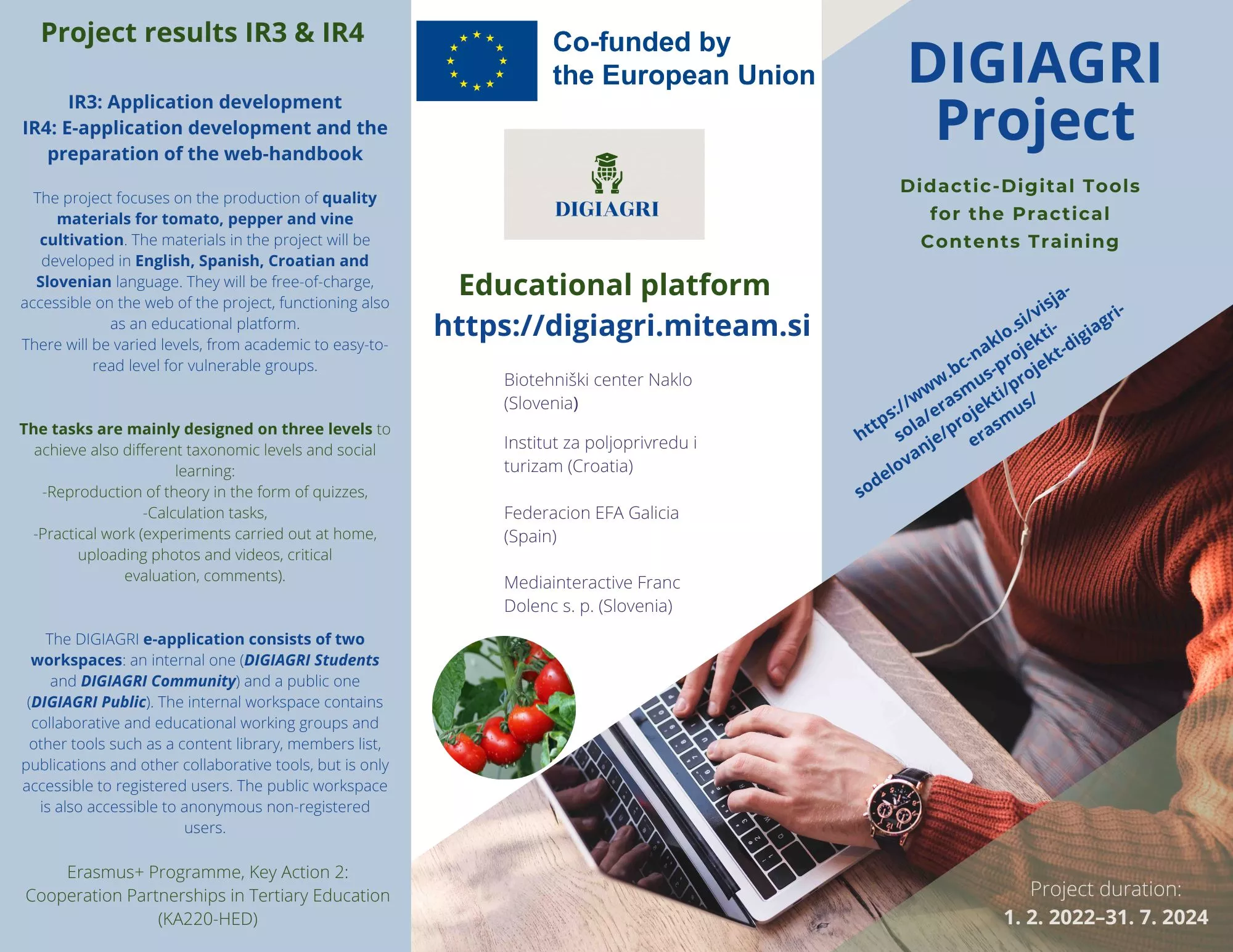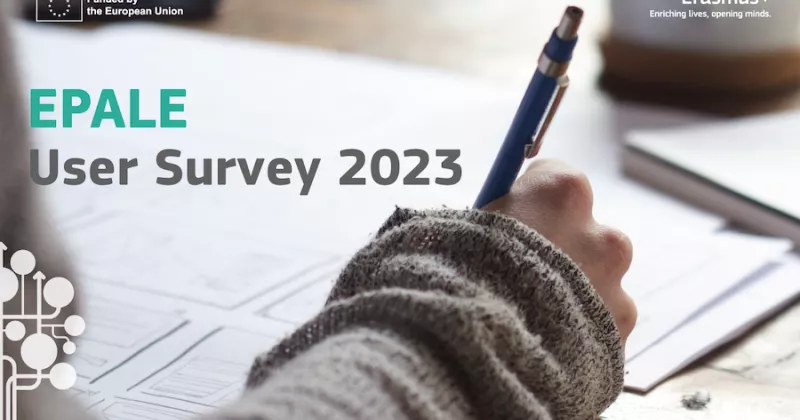THE DIGIAGRI PROJECT: DIDACTIC-DIGITAL TOOLS FOR THE PRACTICAL CONTENTS TRAINING

Lifelong learning is needed to adapt to the changes in the workplace brought about by digitalisation. The DIGIAGRI project will also digitise practice to a certain extent. Four partners from Spain, Croatia, Slovenia are participating in the project. The objectives of the project include enabling distance learning for all students, increasing the flexibility of practical training and improving the pedagogical and digital competences of tutors and students.
The project will deliver the following five results:
1: The analysis of the existing tools, environments and applications for a distance practical classes and study cases
2: The the curriculum of the website training »e-practical classes« and preparation of professional instructions
3: Application development
4: E-application development and the preparation of the web-handbook
5: Sample e-lesson plans, their implementation (on terrain) and evaluation in practice
The project focuses on the production of quality materials for tomato, pepper and vine cultivation. The materials in the project will be developed in English, Spanish, Croatian and Slovenian language. They will be free-of-charge, accessible on the web of the project, functioning also as an educational platform. There will be varied levels, from academic to easy-to-read level for vulnerable groups.
The tasks are mainly designed on three levels to achieve also different taxonomic levels and social learning:
-Reproduction of theory in the form of quizzes,
-Calculation tasks,
-Practical work (experiments carried out at home, uploading photos and videos, critical
evaluation, comments).
The DIGIAGRI e-application consists of two workspaces: an internal one (DIGIAGRI Students and DIGIAGRI Community) and a public one (DIGIAGRI Public). The internal workspace contains collaborative and educational working groups and other tools such as a content library, members list, publications and other collaborative tools, but is only accessible to registered users. The public workspace is also accessible to anonymous non-registered users.
A Slovenian multiplier event was held in April 2024 to present the project and its results, Online training for mentors will be provided in May.
More about the project at the website of leading partner Biotechnical Centre Naklo: HERE: https://www.bc-naklo.si/visja-sola/erasmus-projekti-sodelovanje/projekt…
The DIGIAGRI project contributes to enriching the teaching profession and promotes food self-sufficiency, lifelong learning, intergenerational networking and healthy lifestyles through freely available plant growing materials. You can test educational platform at the website: HERE: https://digiagri.miteam.si/
The national Erasmus+ agency, CMEPIUS, recognised the project as an example of good practice.
Milena Maček Jerala, employed at the BC Naklo as a Higher Vocational Lecturer, the coordinator of the DIGIAGRI project and the head of the Competence and Career Centre. She is currently a student of an online PhD programme.




Thank you
Thank you for providing an overview of the DIGIAGRI project, a significant initiative aiming to bring digitalization and flexibility to agricultural education and training. Lifelong learning is crucial for adapting to the rapid technological changes in various industries, including agriculture. The DIGIAGRI project addresses these challenges by offering digital solutions for practical training, thereby enabling more flexible and accessible learning opportunities.